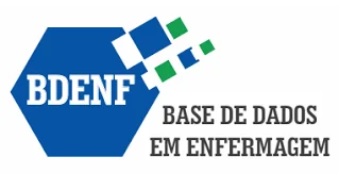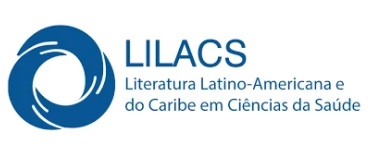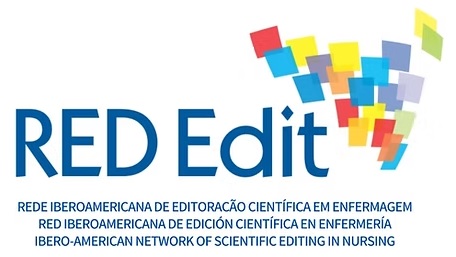Impacto dos Grupos De Apoio na sobrecarga de cuidadores familiares em Portugal
DOI:
https://doi.org/10.33159/25959484.repen.2024v35a02Palavras-chave:
Comunicação Social, Relações Familiares, Avaliação de Processos em Cuidados de Saúde, Garantia da Qualidade dos Cuidados de Saúde, Licença para Cuidar de Pessoa da Família, Vulnerabilidade SocialResumo
Objetivo: Analisar a relação entre a sobrecarga do cuidador familiar e o apoio social com a participação em grupos de apoio presenciais e virtuais. Métodos: Estudo pré-experimental. Critérios de inclusão: cuidadores informais, maiores de idade, residentes na região centro-sul de Portugal. Variável independente: participação num grupo de apoio presencial (GA), num fórum virtual (FV) ou nenhum grupo (GC). Variáveis dependentes: sobrecarga de cuidado (Índice de Esforço do Cuidador) e apoio social percebido (escala MOS). Análise descritiva, binária e multivariada com o programa estatístico SPSS 22. Resultados: Participaram 109 cuidadores, principalmente mulheres, cuidando dos seus filhos. 47,7% sofreram sobrecarga pelo cuidado, sendo mais alta no GC. O apoio social foi bom em 64,2% dos participantes, sendo maior no GA. Houve uma associação significativa com o género e a rede social (ser mulher está associado a uma maior sobrecarga, enquanto uma ampla rede social diminui a sobrecarga do cuidador). A participação num GA ou FV melhorou significativamente a rede e o apoio social. Conclusão: A participação em grupos de apoio, tanto presenciais quanto virtuais, tem uma relação positiva significativa com a redução da sobrecarga do cuidador e o aumento do apoio social percebido. Estes grupos de apoio são recursos essenciais para os cuidadores informais, ajudando a mitigar os efeitos negativos do cuidado e fortalecendo as suas redes sociais e o apoio. Portanto, promover a participação em tais grupos pode ser uma estratégia eficaz para melhorar o bem-estar dos cuidadores familiares.
Descritores: Apoio social, Carga de cuidar, Cuidadores informais, Grupos de apoio, Redes sociais online.
Referências
1. Ullgren H, Tsitsi T, Papastavrou E, Charalambous A. How family caregivers of cancer patients manage symptoms at home: a systematic review. Int J Nurs Stud. 2018;85:68–79. https://doi.org/10.1016/j.ijnurstu.2018.05.004 DOI: https://doi.org/10.1016/j.ijnurstu.2018.05.004
2. Cabada Ramos E, Martínez Castillo VA. Prevalencia del síndrome de sobrecarga y sintomatología ansiosa depresiva en el cuidador del adulto mayor. Psicol Salud [Internet]. 2017[cited 2022 Dec 14];27(1):53-59. Available from: http://www.biblat.unam.mx/es/revista/psicologia-y-salud/articulo/prevalencia-del-sindrome-de-sobrecarga-y-sintomatologia-ansiosa-depresiva-en-el-cuidador-del-adulto-mayor
3. Sandstedt P, Littorin S, Widsell GC, Johansson S, Gottberg K, Ytterberg C, et al. Caregiver experience, health-related quality of life and life satisfaction among informal caregivers to patients with amyotrophic lateral sclerosis: a cross-sectional study. JCN. 2018;27(23–24):4321–30. https://doi.org/10.1111/jocn.14593 DOI: https://doi.org/10.1111/jocn.14593
4. Martín-Carrasco M, Domínguez-Panchón AI, Muñoz-Hermoso P, González-Fraile E, Ballesteros-Rodríguez J. Instrumentos para medir la sobrecarga en el cuidador informal del paciente con demencia. Rev Esp Geriatr Gerontol. 2013;48(6):276-84. https://doi.org/10.1016/j.regg.2013.06.002 DOI: https://doi.org/10.1016/j.regg.2013.06.002
5. Mendes PN, Figueiredo ML, Santos AM, Fernandes MA, Fonseca RS. Sobrecargas física, emocional e social dos cuidadores informais de idosos. Acta Paul Enferm. 2019;32(1):87-94. https://doi.org/10.1590/1982-0194201900012 DOI: https://doi.org/10.1590/1982-0194201900012
6. Suarez Cuba MA. Identificación y utilidad de las herramientas para evaluar el apoio social al paciente y al cuidador informal. Rev Med La Paz [Internet]. 2011 [cited 2022 Mar 11];17(1):60-7. Available from: http://www.scielo.org.bo/pdf/rmcmlp/v17n1/v17n1_a10.pdf
7. García FE, Manquián E. Rivas G. Bienestar psicológico, estrategias de afrontamiento y apoio social en cuidadores informales. Psicoperspectivas [Internet]. 2016 [cited 2022 Mar 11];15(3):101-11. Available from: https://scielo.conicyt.cl/scielo.php?script=sci_arttext&pid=S0718-69242016000300010&lng=es&tlng=es DOI: https://doi.org/10.5027/psicoperspectivas-Vol15-Issue3-fulltext-770
8. Christensen ER, Golden SL, Gesell SB. Perceived benefits of peer support groups for stroke survivors and caregivers in rural North Carolina. NCMJ. 2019;80(3):143-8. https://doi.org/10.18043/ncm.80.3.143 DOI: https://doi.org/10.18043/ncm.80.3.143
9. Parker Oliver D, Patil S, Benson JJ, Gage A, Washington K, Kruse RL, et al. The effect of internet group support for caregivers on social support, self-efficacy, and caregiver burden: a meta-analysis. Telemed e-Health. 2017;23(8):621-9. https://doi.org/10.1089/tmj.2016.0183 DOI: https://doi.org/10.1089/tmj.2016.0183
10. Botero de Mejía BE, Pico Merchán ME. Calidad de Vida Relacionada con la Salud (CVRS) en adultos mayores de 60 años: una aproximación teórica. Hacia la Promoción de la Salud. 2007 [cited 2022 11 Mar]; 12(1): 11-24. Available from: http://www.scielo.org.co/scielo.php?script=sci_arttext&pid=S0121-75772007000100002&lng=en&tlng=
11. Roca-Soriano F. Los “desconocidos” grupos de ajuda mutua. Cuad Trab Soc [Internet]. 1998 [cited 2022 Mar 11];11(1):251–63. Available from: http://dialnet.unirioja.es/servlet/articulo?codigo=119494&info=resumen&idioma=SPA
12. Alves de Oliveira F, Santos MA. Terapia comunitária como recurso de abordagem do problema do abuso do álcool, na atenção primária. Rev Latino-Am Enfermagem. 2011;19:821-30. https://doi.org/10.1590/S0104-11692011000700021 DOI: https://doi.org/10.1590/S0104-11692011000700021
13. Gräbel E, Trilling A, Donath C, Luttenberger K. Support groups for dementia caregivers-predictors for utilisation and expected quality from a family caregiver’s point of view: a questionnaire survey part I. BMC Health Serv Res. 2010;10:219. https://doi.org/10.1186/1472-6963-10-219 DOI: https://doi.org/10.1186/1472-6963-10-219
14. Ahmadi KS. What is a Self-Help Group? PsychCentral[Internet]. 2018 [cited 2023 Feb 27]. Available from: https://psychcentral.com/lib/what-is-a-self-help-group/
15. Moya-Olea MJ, Costa-Vidiella S. Manual de consulta sobre grupos de ajuda mutua de pessoas con discapacidad física [Internet]. Barcelona: Federación ECOM; 2008 [cited 2022 20 Nov]. Available from: http://www.ecom.cat/sites/default/files/docs/publications/manual_gam_cast.pdf
16. Dam AE, Vugt ME, Klinkenberg IP, Verhey FR, van Boxtel MP. A systematic review of social support interventions for caregivers of people with dementia: are they doing what they promise?. Maturitas. 2016;85:117–30. https://doi.org/10.1016/j.maturitas.2015.12.008 DOI: https://doi.org/10.1016/j.maturitas.2015.12.008
17. Bernabéu-Álvarez C, Faus-Sanoguera M, Lima-Serrano M, Lima-Rodríguez JS. Revisión sistemática: influencia de los Grupos de Ajuda Mutua sobre cuidadores familiares. Enf Global [Internet]. 2020 [cited 2023 Feb 27];19(2):560-9. Available from: https://revistas.um.es/eglobal/article/view/392181 DOI: https://doi.org/10.6018/eglobal.392181
18. Des Jarlais DC, Lyles C, Crepaz N; TREND Group. Improving the reporting quality of nonrandomized evaluations of behavioral and public health interventions: the TREND statement. Am J Public Health. 2004;94:361-6. https://doi.org/10.2105/ajph.94.3.361 DOI: https://doi.org/10.2105/AJPH.94.3.361
19. Robinson BC. Validation of a Caregiver Strain Index. J Gerontol. 1983;38:344-8. https://doi.org/10.1093/geronj/38.3.344 DOI: https://doi.org/10.1093/geronj/38.3.344
20. Ribeiro O, Brandão D, Oliveira AF, Martín I, Teixeira L, Paúl C. The Modified Caregiver Strain Index: Portuguese version. J Health Psychol. 2021;26(10):1597–608. https://doi.org/10.1177/1359105319883933 DOI: https://doi.org/10.1177/1359105319883933
21. Thornton M, Travis SS. Analysis of the reliability of the modified caregiver strain index. J Gerontol B Psychol Sci Soc Sci. 2003;58(2):S127-S132. https://doi.org/10.1093/geronb/58.2.s127 DOI: https://doi.org/10.1093/geronb/58.2.S127
22. Sherbourne CD, Stewart AL. The MOS social support survey. Soc Sci Med. 1991;38:705-14. https://doi.org/10.1016/0277-9536(91)90150-b DOI: https://doi.org/10.1016/0277-9536(91)90150-B
23. Griep RH, Chor D, Faerstein E, Werneck GL, Lopes CS. Construct validity of the Medical Outcomes Study's social support scale adapted to Portuguese in the Pró-Saúde Study. Cuad Saúde Pública. 2005;21(3):703-14. https://doi.org/10.1590/S0102-311X2005000300004 DOI: https://doi.org/10.1590/S0102-311X2005000300004
24. Alonso A, Montes A, Menendez V, Graça M. Adaptação cultural e validação da versão portuguesa Questionário Medical Outcomes Study Social Support Survey (MOS-SSS). Acta Méd Port [Internet]. 2007 [cited 2022 Nov 20];20:525-33. https://www.actamedicaportuguesa.com/revista/index.php/amp/article/view/894/568
25. Cvetković Vega AL, Maguiña J, Soto A, Lama-Valdivia J, Correa López LE. Cross-sectional studies: estudios transversales. Rev Fac Med Hum. 2020;21(1). https://doi.org/10.25176/rfmh.v21i1.3069 DOI: https://doi.org/10.25176/RFMH.v21i1.3069
26. Schiaffino A, Rodríguez M, Pasarín MI, Regidor E, Borrell C, Fernández E. ¿Odds ratio o razón de proporciones?: su utilización en estudios transversales. Gac Sanit [Internet]. 2003 [cited 2023 Feb 27];17(1):51-51. Available from: http://scielo.isciii.es/scielo.php?script=sci_arttext&pid=S0213-91112003000100012&lng=es DOI: https://doi.org/10.1157/13043426
27. Carvalho MI, Pinto C, Ribeirinho C, Teles H, Correia P. Estudo sobre o Perfil do Cuidador Familiar/Informal da Pessoa Sénior em Portugal [Internet]. Lisboa: Centro de Administração e Políticas Públicas, Instituto Superior de Ciências Sociais e Políticas, Universidade de Lisboa; 2021. https://doi.org/10.13140/RG.2.2.33334.83522
28. Lopez Hartmann M, Anthierens S, Van Assche E, Welvaert J, Verhoeven V, Wens J, Remmen R. Understanding the experience of adult daughters caring for an ageing parent, a qualitative study. J Clin Nurs. 2016;25(11-12):1693–702. https://doi.org/10.1111/jocn.13195 DOI: https://doi.org/10.1111/jocn.13195
29. Reczek C, Umberson D. Greedy spouse, needy parent: the marital dynamics of gay, lesbian, and heterosexual intergenerational caregivers. J Marriage Fam. 2016;78(4):957–74. https://doi.org/10.1111/jomf.12318 DOI: https://doi.org/10.1111/jomf.12318
30. Chien WT, Bressington D, Chan SWC. A randomized controlled trial on mutual support group intervention for families of people with recent-onset psychosis: a four-year follow-up. Front Psychiatry. 2018;9:710. https://doi.org/10.3389/fpsyt.2018.00710 DOI: https://doi.org/10.3389/fpsyt.2018.00710
31. Chiu MY, Wei GF, Lee S, Choovanichvong S, Wong FH. Empowering caregivers: impact analysis of FamilyLink Education Programme (FLEP) in Hong Kong, Taipei and Bangkok. Int J Soc Psychiatry. 2013;59(1):28–39. https://doi.org/10.1177/0020764011423171 DOI: https://doi.org/10.1177/0020764011423171
32. Chou KR, Liu SY, Chu H. The effects of support groups on caregivers of patients with schizophrenia. Int J Nurs Stud. 2002;39(7):713–22. https://doi.org/10.1016/s0020-7489(02)00013-5 DOI: https://doi.org/10.1016/S0020-7489(02)00013-5
33. Bernabéu-Álvarez, C. Influencia de los Grupos de Ajuda Mutua sobre pessoas cuidadoras familiares y la salud familiar [Tesis] [Internet]. Sevilla: Universidad de Sevilla. 2021[cited 2023 Feb 27]. Available from: https://hdl.handle.net/11441/108933
34. Shokrgozar S, Rouzbehan V, Zare R, Abdollahi E. Evaluation of patient social support, caregiver burden, and their relationship with the course of the disease in patients with bipolar disorder. Int J Soc Psychiatry. 2022;68(8):1815-23. https://doi.org/10.1177/00207640211061984 DOI: https://doi.org/10.1177/00207640211061984
35. Menekli T, Şentürk S. Caregiver burden and the perceived social support of the family caregivers of the patients awaiting hematopoietic stem cell transplantation. Transpl Immunol. 2022;71:101535. https://doi.org/10.1016/j.trim.2022.101535 DOI: https://doi.org/10.1016/j.trim.2022.101535
36. Herdman T, Kamitsuru S. NANDA International. Nursing Diagnoses: definitions and classification 2018-2020. 11.ed. USA: Thieme; 2017. DOI: https://doi.org/10.1055/b-006-161141
37. Moorhead S, Johnson M, Maas ML, Swanson E. Nursing Outcomes Classification (NOC). 6. Ed. Amsterdam: Elsevier; 2018.
38. Butcher HK, Bulechek GM, Dochterman JM, Wagner CM. Nursing Interventions Classification (NIC). 7. Ed. Amsterdam: Elsevier; 2018.
39. Ramón-Arbués E, Martínez-Abadía B, Martín-Gómez S. Factores determinantes de la sobrecarga del cuidador. estudio de las diferencias de género. Aten Primaria. 2017;49(5):308-13. https://doi.org/10.1016/j.aprim.2016.07.003 DOI: https://doi.org/10.1016/j.aprim.2016.07.003
40. Chien WT, Chan SW. The effectiveness of mutual support group intervention for Chinese families of people with schizophrenia: a randomised controlled trial with 24-month follow-up. Int J Nurs Stud. 2013;50(10):1326–40. https://doi.org/10.1016/j.ijnurstu.2013.01.004 DOI: https://doi.org/10.1016/j.ijnurstu.2013.01.004
41. Trail T, Friedman E, Rutter CM, Tanielian T. The relationship between engagement in online support groups and social isolation among military caregivers: Longitudinal Questionnaire Study. JMIR. 2020;22(4):e16423. https://doi.org/10.2196/16423 DOI: https://doi.org/10.2196/16423
42. Teles S, Ferreira A, Seeher K, Fréel S, Paúl C. Online training and support program (iSupport) for informal dementia caregivers: protocol for an intervention study in Portugal. BMC Geriatr. 2020;20(1):10. https://doi.org/10.1186/s12877-019-1364-z DOI: https://doi.org/10.1186/s12877-019-1364-z
Downloads
Publicado
Como Citar
Edição
Seção
Licença
Copyright (c) 2024 Revista Paulista de Enfermagem

Este trabalho está licenciado sob uma licença Creative Commons Attribution 4.0 International License.
Propriedade intelectual
Todo o conteúdo da REPEn, exceto onde está identificado, está licenciado sob uma Licença Creative Commons do tipo atribuição CC-BY (https://creativecommons.org/licenses/by/4.0/deed.pt_BR).










